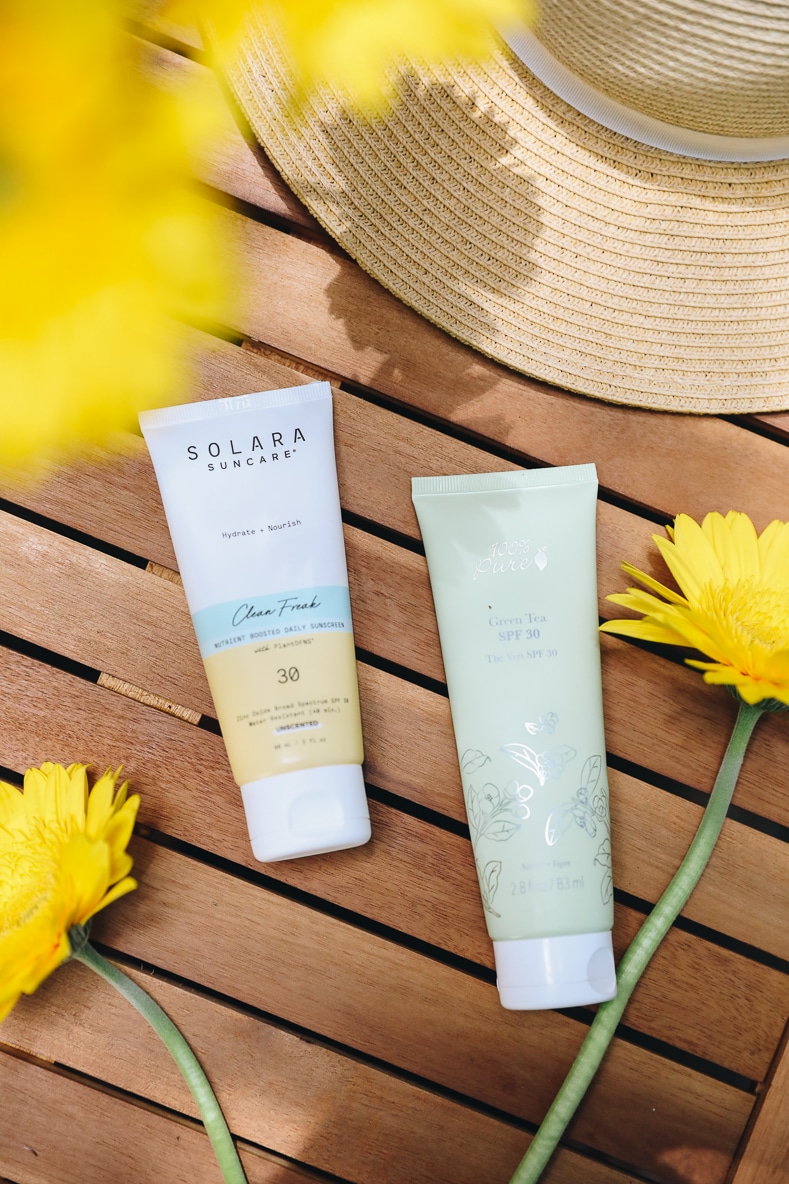

There are many other toxic ingredients in inorganic sunscreens that will disrupt hormones, break down into free radicals and has an estrogenic effect in humans. PABA has the capacity to damage DNA, which can create numerous health problems, which is especially detrimental to children.
#ORGANIC SUNSCREEN SKIN#
Sunscreen is a substance applied to the skin designed to block the harmful UV rays. This all factors in as to why sunscreen is so important.


All editorial content is written without prejudice or bias, regardless of sponsor or affiliate associations. We are independently owned and the opinions expressed here are our own.
#ORGANIC SUNSCREEN FULL#
In full compliance with the FTC guidelines, please assume that any and all links on the table are affiliate links, and we may receive compensation if you click one of these and make a purchase. The table below does not include all companies or all available products in the market but those that we promote as their affiliates.

By contributing your product facts helps to better serve our readers and the accuracy of the content. If something is factually inaccurate please contact us and let us know. All trademarks, registered trademarks and service-marks mentioned on this site are the property of their respective owners. The provided information includes product information, overviews, buying guides, and product specifications. With rare exceptions, the active ingredients undergo photochemical changes (in some cases form free radicals) and the sunscreen lotions lose considerable Sun protection efficacy only after a relatively short time when exposed to simulated sunlight UVB/UVA radiation, confirming the recent findings by Sayre et al.The content that appears on this page is presented as an overview vs. The photostabilities of sunscreen organic active agents in neat polar and apolar solvents and in actual commercial formulations have been examined. Deactivation of TiO 2 diminishes considerably, in some cases completely suppresses damage caused to DNA plasmids, to human cells, and to yeast cells compared to non-modified specimens exposed to UVB/UVA simulated solar radiation. Accordingly, the titanium dioxide particle surface was modified to produce TiO 2 specimens of considerably reduced photoactivity. Hydroxyl ( OH) radicals photogenerated from photoactive TiO 2 specimens extracted from commercial sunscreen lotions induce damage to DNA plasmids in vitro and to whole human skin cells in cultures. When so photoactivated by UV light, however, these two particular metal oxides are known to generate highly oxidizing radicals ( OH and O 2 - ) and other reactive oxygen species (ROS) such as H 2O 2 and singlet oxygen, 1O 2, which are known to be cytotoxic and/or genotoxic. They are also extensively used in sunscreen lotions as active broadband sunscreens that screen both UVB (290–320 nm) and UVA (320–400 nm) sunlight radiation and as high SPF makers. Minerals such as titanium dioxide, TiO 2, and zinc oxide, ZnO, are well known active semiconductor photocatalysts used extensively in heterogeneous photocatalysis to destroy environmental pollutants that are organic in nature.


 0 kommentar(er)
0 kommentar(er)
